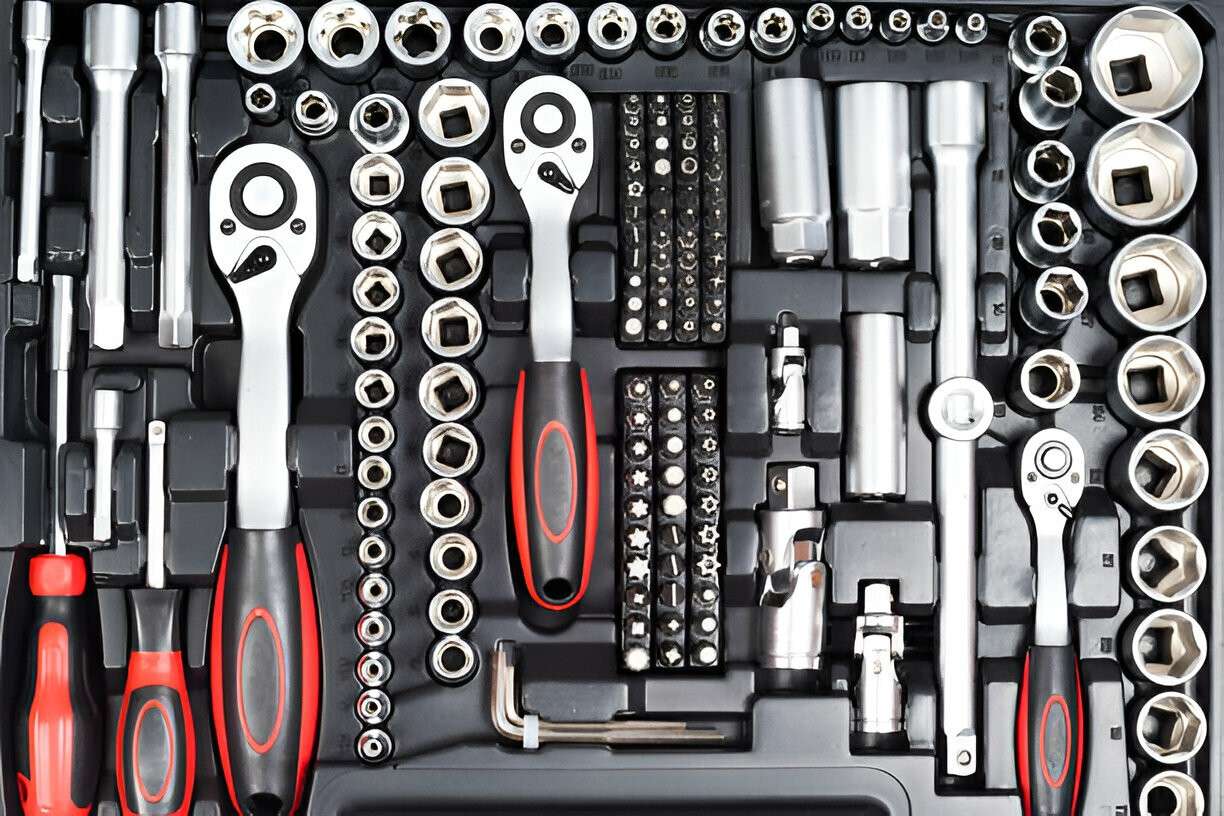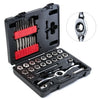
The Future of Automotive Tools: Trends and Predictions
As automotive technology continues to evolve at a rapid pace, so do the tools and equipment used in the industry. From advanced diagnostic systems to eco-friendly manufacturing processes, the future of automotive tools is poised for groundbreaking transformations.
In this blog post, we will delve into the current landscape of automotive tools, explore emerging trends shaping the industry, and make predictions on what the future holds for these essential components of the automotive sector. Join us as we navigate through the exciting developments and innovations that are set to revolutionize the way we approach automotive maintenance and repair.
Predictions for the Future of Automotive Tools
The future of automotive tools holds exciting possibilities, driven by the emerging trends and advancements in technology. In this section, we will explore several predictions for the future of automotive tools and how they will shape the industry.
- Continued Growth of AI
Artificial intelligence (AI) will play a crucial role in the future of automotive tools. As AI algorithms become more sophisticated, diagnostic tools will be able to analyze complex vehicle systems and provide accurate and efficient troubleshooting. AI-powered tools will also enable predictive maintenance, detecting potential issues before they escalate and optimizing vehicle performance. The integration of AI in automotive tools will revolutionize the way repairs and maintenance are carried out, reducing downtime and improving overall efficiency.
- Increased Emphasis on Sustainability
The automotive industry is increasingly focused on sustainability, and this emphasis will extend to automotive tools as well. In the future, we can expect tools to be designed with eco-friendly materials and manufacturing processes. Energy-efficient power tools, recyclable components, and reduced waste in tool production will become more prevalent. Manufacturers will prioritize sustainability in their tool development, aligning with the global shift towards cleaner and greener practices.
- Rise in 3D Printing for Tool Manufacturing
3D printing technology has already made significant advancements in various industries, and the automotive tool industry is no exception. In the future, we can anticipate a rise in 3D printing for tool manufacturing. This technology will enable the production of customized and complex tools with greater efficiency and cost-effectiveness. 3D printing will also facilitate rapid prototyping, allowing for faster development of innovative tool designs. This trend will lead to increased accessibility, versatility, and affordability of automotive tools.
- Adaptation to Electric Vehicles
As electric vehicles (EVs) gain prominence, automotive tools will need to adapt to the unique requirements of these vehicles. EVs have different components and systems compared to traditional combustion engine vehicles, necessitating specialized tools for maintenance and repairs. Future automotive tools will cater to the specific needs of EVs, such as high-voltage diagnostics, battery maintenance, and electric motor servicing. This adaptation will ensure that technicians and enthusiasts can effectively work with the growing number of EVs on the road.
These predictions offer a glimpse into the exciting future of automotive tools. The integration of AI, sustainability practices, 3D printing, and EV-focused tools will transform the industry, making repairs and maintenance more efficient, environmentally friendly, and tailored to the evolving automotive landscape. In the next section, we will examine the impact of these future trends and predictions on the automotive industry as a whole.
Related Article: The Comprehensive Guide to Automotive Tool Brands: Who Makes the Best?
Impact of Future Trends and Predictions on the Automotive Industry
The future trends and predictions in automotive tools will have a profound impact on the automotive industry as a whole. In this section, we will explore the various ways in which these trends will shape manufacturing processes, job roles and skills, potential challenges, and the overall economy.
- Changes in Manufacturing Processes
The integration of advanced technologies like AI, 3D printing, and IoT in automotive tools will drive changes in manufacturing processes. Traditional tool manufacturing methods may give way to more automated and efficient production techniques. This shift will lead to increased precision, shorter production cycles, and reduced costs. Manufacturers will also need to adapt their supply chains and workflows to accommodate the changing requirements of these innovative tools.
- Impact on Job Roles and Skills
The introduction of AI-powered diagnostic tools and automated processes will impact job roles and required skills in the automotive industry. Technicians and mechanics will need to upskill and adapt to work effectively with these advanced tools. Proficiency in data analysis, AI algorithms, and software interfaces will become essential. Additionally, new job roles may emerge, such as AI tool specialists and 3D printing technicians, as the industry embraces these technologies.
- Potential Challenges and Solutions
As with any technological advancements, the future of automotive tools may bring forth challenges that need to be addressed. Integration of AI and IoT may raise concerns about data security and privacy. The transition to eco-friendly manufacturing processes may require investment and restructuring. Additionally, the introduction of specialized tools for EVs may require training and familiarization for technicians. However, these challenges can be overcome through effective regulations, industry collaboration, and continuous skill development programs.
- Effects on the Overall Economy
The future trends in automotive tools will have a ripple effect on the overall economy. The adoption of advanced technologies will lead to increased efficiency and productivity in repairs and maintenance, reducing vehicle downtime. This, in turn, will positively impact various sectors of the economy, such as transportation, logistics, and manufacturing. The growth of the automotive tool industry itself will generate employment opportunities and contribute to economic growth.
The impact of future trends and predictions on the automotive industry is vast and far-reaching. From changes in manufacturing processes to the evolution of job roles and skills, these advancements will shape the industry's landscape and drive economic growth. In the next section, we will discuss how professionals and enthusiasts can prepare for the future of automotive tools.
Related Article: Selecting Quality Automotive Tools: What to Look for Before You Buy
Preparing for the Future of Automotive Tools
Preparing for the future of automotive tools requires proactive steps from professionals, enthusiasts, and industry stakeholders. In this final section, we will explore key strategies and actions that can be taken to embrace the advancements in automotive tools and stay ahead in the rapidly evolving industry.
- Investing in Skill Development
As automotive tools become more advanced, it is essential for professionals to continuously update their skills and knowledge. Training programs and certifications focused on AI diagnostics, 3D printing, and IoT integration should be pursued. Ongoing professional development will ensure that technicians and mechanics are equipped with the expertise needed to effectively utilize the latest tools and technologies.
- Adopting Sustainability Practices
With the increasing focus on sustainability, automotive professionals and enthusiasts should incorporate eco-friendly practices into their operations. This includes using tools made from recycled or recyclable materials, minimizing energy consumption, and properly disposing of hazardous waste. By adopting sustainable practices, individuals can contribute to a greener automotive industry and align with the growing demand for environmentally conscious solutions.
- Embracing Technological Innovations
To remain competitive, it is crucial to embrace technological innovations in automotive tools. This includes staying updated on the latest advancements in AI, 3D printing, and IoT, and being open to incorporating these technologies into daily operations. Embracing new tools and techniques will enhance efficiency, accuracy, and customer satisfaction, positioning professionals and businesses at the forefront of the industry.
- Collaboration and Information Sharing
Collaboration and information sharing among industry stakeholders are vital for the advancement of automotive tools. Professionals, manufacturers, and enthusiasts should actively participate in industry events, conferences, and online forums to exchange knowledge, discuss emerging trends, and share best practices. By fostering collaboration, the industry as a whole can drive innovation and collectively prepare for the future of automotive tools.
By investing in skill development, adopting sustainability practices, embracing technological innovations, and promoting collaboration, professionals and enthusiasts can effectively prepare for the future of automotive tools. These proactive measures will ensure that individuals and businesses are well-equipped to navigate the evolving industry landscape and reap the benefits of the exciting advancements in automotive technology.
Related Article: The Evolution of Automotive Tools: A Historical Perspective
WRAP UP
In conclusion, the future of automotive tools holds tremendous potential for transformative changes. From the integration of AI and IoT to the rise of eco-friendly manufacturing practices, these trends will shape the industry and revolutionize the way we approach automotive maintenance and repair. By understanding the current landscape, recognizing emerging trends, making accurate predictions, and taking proactive steps, we can prepare ourselves for a future where automotive tools are smarter, more sustainable, and more efficient than ever before.
Related Article: 15 Automotive Tools Every DIY Mechanic Needs in His Tool Box



